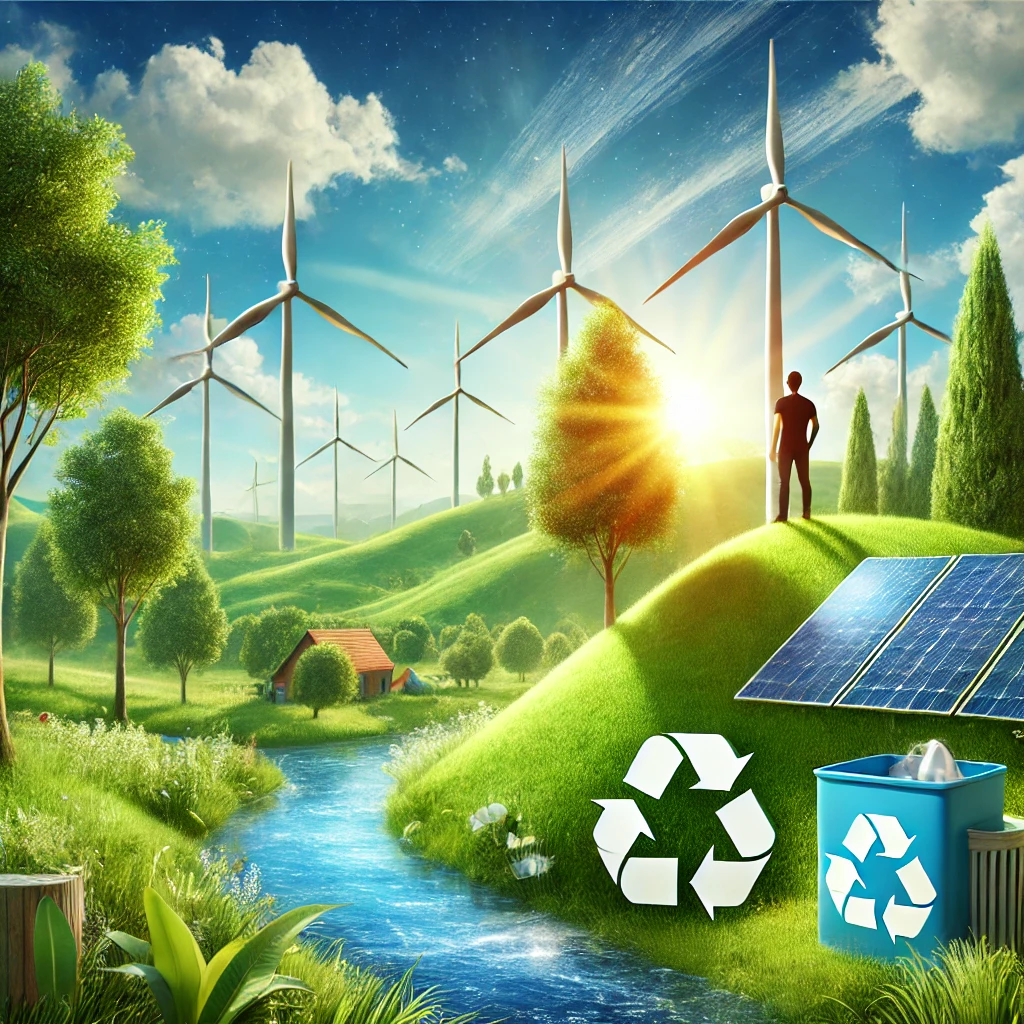Sustainable Living and Environmental Stewardship: Living in Harmony with the Planet
Introduction
Sustainable living is more than a personal choice; it is a commitment to align your lifestyle with values that support the health and longevity of our planet. By embracing eco-conscious practices, reducing waste, and promoting conservation, sustainable living ensures that we not only preserve the Earth for future generations but also enrich our own lives with purpose and responsibility. Environmental stewardship is the active practice of protecting and restoring natural ecosystems, recognizing our interconnectedness with the environment.
1. Understanding Sustainable Living and Environmental Stewardship
What is Sustainable Living?
Sustainable living involves making daily choices that minimize your environmental impact, reduce resource consumption, and promote eco-friendly habits. It focuses on meeting your needs without compromising the ability of future generations to meet theirs.
What is Environmental Stewardship?
Environmental stewardship is the responsibility of caring for the planet through conservation efforts, advocacy, and sustainable practices. It involves both individual and collective actions to restore and protect natural ecosystems.
Why It Matters:
- Environmental Health: Reducing pollution and conserving resources supports the planet’s ecosystems.
- Future Generations: Sustainable practices ensure that essential resources are available for generations to come.
- Personal Fulfillment: Living sustainably fosters a sense of purpose and alignment with values of care and responsibility.
2. Goals for Sustainable Living and Environmental Stewardship
- Live Sustainably: Adopt practices that reduce waste, conserve energy, and minimize resource consumption.
- Promote Environmental Awareness: Educate yourself and others about the importance of sustainability and conservation.
- Support Conservation Efforts: Actively participate in initiatives that protect natural habitats and biodiversity.
3. Focus Areas for Sustainable Living
1. Waste Reduction
Minimizing waste is a cornerstone of sustainable living and involves reducing what you consume and rethinking how you dispose of items.
- Strategies for Waste Reduction:
- Adopt a minimalist lifestyle by focusing on quality over quantity.
- Practice the 5 Rs: Refuse, Reduce, Reuse, Recycle, Rot (compost).
- Avoid single-use plastics by using reusable alternatives like water bottles, shopping bags, and food containers.
- Action Steps:
- Conduct a waste audit to identify areas where you can reduce waste.
- Transition to reusable household items such as cloth napkins and beeswax wraps.
- Start composting organic waste to reduce landfill contributions.
2. Renewable Energy
Using renewable energy reduces dependency on fossil fuels and decreases greenhouse gas emissions.
- Ways to Incorporate Renewable Energy:
- Install solar panels for home energy needs.
- Support clean energy providers through green energy programs.
- Use energy-efficient appliances and LED lighting to reduce electricity consumption.
- Action Steps:
- Research renewable energy options available in your area.
- Switch to energy-efficient appliances and unplug devices when not in use.
- Advocate for renewable energy policies in your community.
3. Eco-Friendly Habits
Small daily changes can collectively create a significant positive impact on the environment.
- Examples of Eco-Friendly Habits:
- Use public transportation, bike, or carpool to reduce carbon emissions.
- Buy locally-sourced, organic, or fair-trade products to support sustainable practices.
- Reduce water consumption by fixing leaks, using low-flow fixtures, and turning off taps when not in use.
- Action Steps:
- Create a sustainable shopping list that prioritizes eco-friendly products.
- Commit to using energy and water mindfully in daily routines.
- Participate in local clean-up drives or tree-planting initiatives.
4. Daily and Weekly Practices for Sustainable Living
Daily Practices:
- Use reusable water bottles, coffee cups, and shopping bags.
- Practice mindful consumption by buying only what you need.
- Sort your waste into recycling, compost, and landfill categories.
Weekly Practices:
- Prepare a sustainable meal plan that reduces food waste and includes plant-based options.
- Dedicate time to outdoor activities like gardening or volunteering for local environmental projects.
- Evaluate your energy and water usage, and make adjustments where needed.
5. Overcoming Common Challenges
- Challenge 1: Limited Resources
- Solution: Start small with simple changes, like reducing single-use plastics, and gradually expand your efforts.
- Challenge 2: Perceived Inconvenience
- Solution: Focus on long-term benefits and find sustainable alternatives that suit your lifestyle.
- Challenge 3: Lack of Awareness
- Solution: Educate yourself through books, documentaries, and workshops on sustainability.
6. Inspirational Quotes on Sustainable Living
- “The Earth is what we all have in common.” – Wendell Berry
- “We do not inherit the Earth from our ancestors; we borrow it from our children.” – Native American Proverb
- “Sustainability is not about doing less harm, it’s about doing more good.” – Jochen Zeitz
7. Resources for Sustainable Living and Environmental Stewardship
Books:
- The Zero Waste Home by Bea Johnson
- Drawdown: The Most Comprehensive Plan Ever Proposed to Reverse Global Warming by Paul Hawken
- This Changes Everything: Capitalism vs. The Climate by Naomi Klein
Websites and Apps:
- EarthHero: Sustainable product marketplace.
- Too Good To Go: App to reduce food waste.
- Ecosia: A search engine that plants trees for every search.
Organizations to Support:
- World Wildlife Fund (WWF): Conservation of wildlife and ecosystems.
- Greenpeace: Advocacy for environmental issues.
- The Nature Conservancy: Habitat and biodiversity protection initiatives.
Conclusion
Sustainable living and environmental stewardship are about taking responsibility for the well-being of our planet and future generations. By focusing on waste reduction, renewable energy, and eco-friendly habits, you can make a meaningful impact while living in alignment with eco-conscious values. Every action, no matter how small, contributes to a healthier and more sustainable world.
The journey to sustainability starts with a single step—take yours today.

